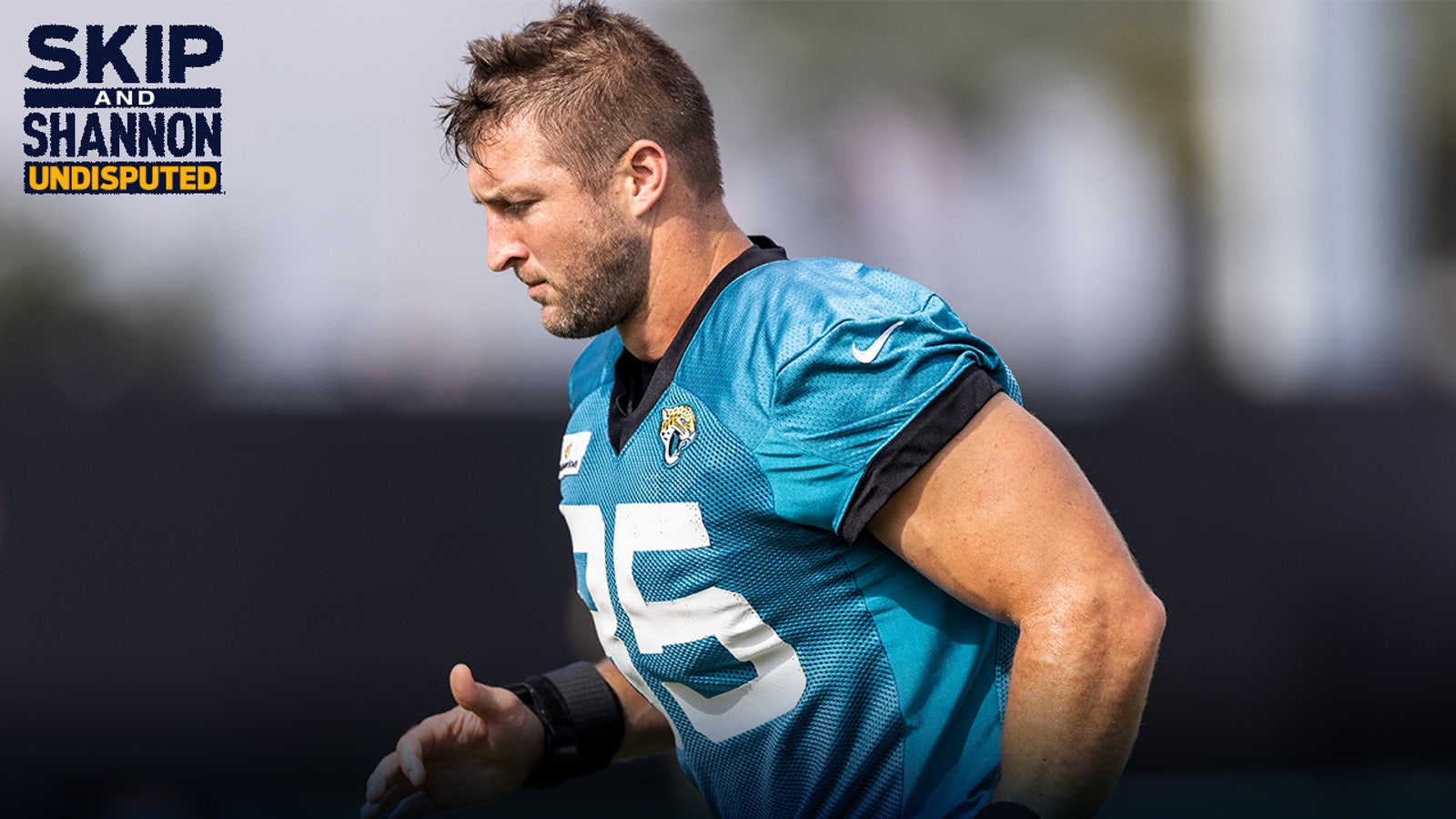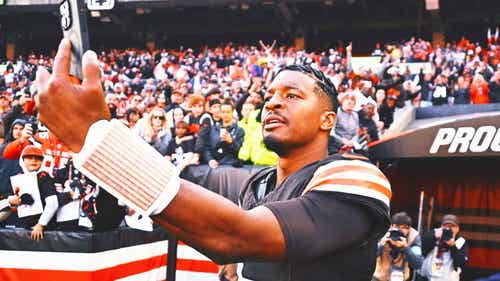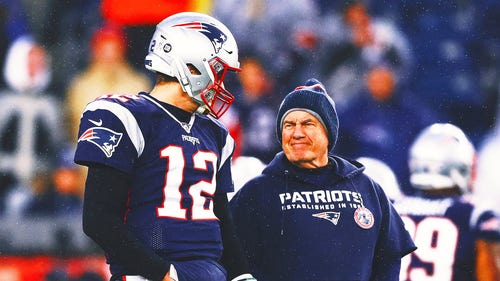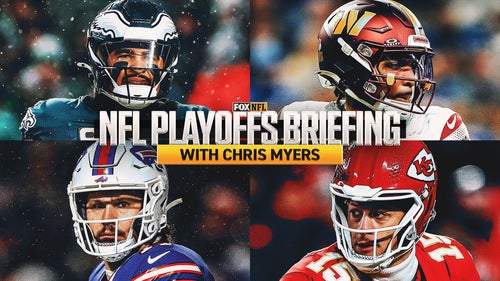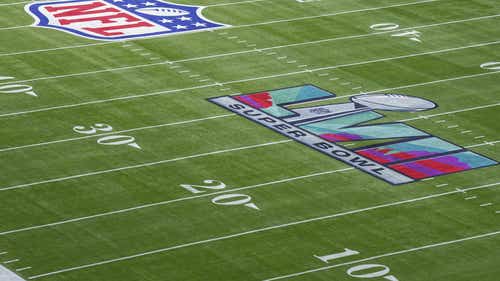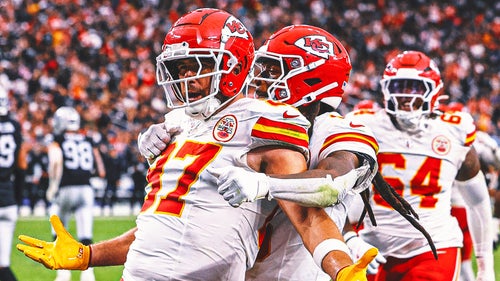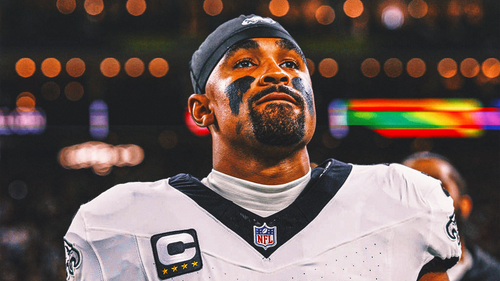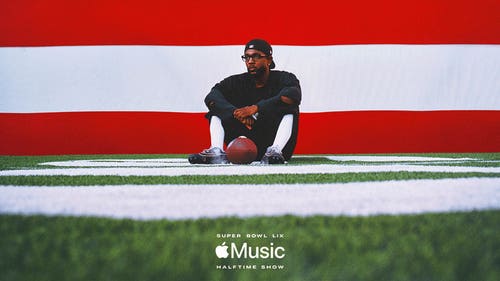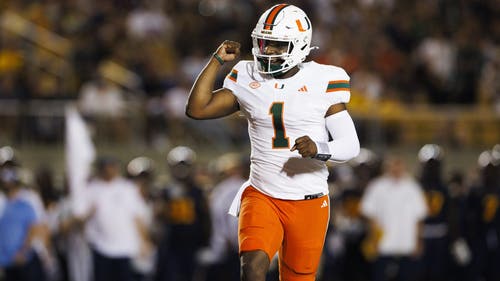
Skip Bayless: Tim Tebow's NFL career fell victim to 'Tebowmania'
By Skip Bayless
FOX Sports
Recently his NFL career came to a shocking and fitting end.
A sad and shameful and perfectly inexplicable end.
Tim Tebow was cut by his former college coach, who had been like a father to him. Cut in his hometown of Jacksonville by its Jaguars. Cut on the first camp cutdown, from 90 players to 85, while trying to play a position he had no business trying to learn on the NFL level at age 34. Cut because he couldn’t catch, block or tackle on special teams as well as the other six tight ends remaining on the roster.

Tim Tebow's NFL career ended with him trying to make the Jaguars' roster as a 34-year-old tight end. (Photo by David Rosenblum/Icon Sportswire via Getty Images)
Cut as the seventh-string tight end, wearing No. 85. That’s how Tim Tebow’s football career ended.
So wrong.
Once upon a time, Timothy Richard Tebow wore No. 15 and played quarterback. In fact, Tebow was one of the greatest college quarterbacks ever, winning two national championships and a Heisman Trophy at Florida. He scored a record 88 touchdowns passing and 57 rushing in his college career (still No. 1 all time in the SEC), even throwing for 482 yards on 31 completions in 35 attempts in his final college game, a Sugar Bowl showcase against Cincinnati.

Tebow, pictured accepting the 2007 Heisman Trophy with Florida coach Urban Meyer, was one of the most decorated quarterbacks in college football history. (Photo by Chris Trotman/Getty Images)
Tebow was a first-round pick — taken 25th overall by a highly respected offensive mind, Josh McDaniels, who had coached and called plays for Tom Brady. In Tebow’s second season, he got thrown into a 1-4 dumpster fire and somehow lifted the Broncos to an AFC West championship and an overtime playoff victory over Ben Roethlisberger’s Steelers.
In those 12 games, Tebow accomplished the greatest sustained run of clutch late-game playmaking by any quarterback ever. In 2011, Tebow led the NFL in QBR in the last five minutes of games.
TIM TEBOW DID THAT, PLAYING QUARTERBACK. YOU CAN LOOK IT UP.
That miraculous run ended just six days after Tebow threw for 316 yards in that playoff win, with the Broncos having to travel on a short week to New England, where Tom Brady and Bill Belichick and the 13-3 Patriots waited, coming off a bye. New England 45, Denver 10. No shame losing that badly to Brady and Belichick.
Yet that game played on Jan. 14, 2012, was the last NFL game Tebow was ever allowed to start. Huh? Impossible.
Was he injured? No, he was remarkably durable. Did he break the law or team rules? No, he was a model citizen and a perfectly boring interview who worked at saying nothing and avoiding controversy.
Tim Tebow worked crazy hard at football and played it as crazy hard as anyone who ever pulled on a helmet and shoulder pads.
So what was Tim Tebow’s downfall?
Tebowmania.

No matter where Tebow went, a very vocal segment of fans would always call him for play. (Photo By Joe Amon/The Denver Post via Getty Images)
The greatest (and saddest) irony of Tebow’s career is that he somehow became the most controversial lightning rod in (I believe) sports history. Yes, a boring interview became a national media magnet — and the hottest debate-show topic ever — because of religion and race and the mold-shattering way in which he won football games.
Tebow was born in the Philippines to missionary parents who raised him to do exactly what Jesus taught his disciples (many of them fishermen) to do in the New Testament: be "fishers of men," to spread God’s word by sharing their testimonies with non-believers. In postgame interviews, many athletes have "given all the glory to God" or thanked their "Lord and Savior Jesus Christ." But perhaps no star athlete has worn his or her religion on his or her sleeve the way Tebow did. He even had a Bible verse (John 3:16) inscribed in the streaks of black he wore under his eyes during games.
Tebow often used his football platform to share how important his faith was to him — "witnessing" as he was taught to do. He kneeled in prayer after scoring — "Tebowing," it was called, often derisively. He ended interviews with "God bless," and you could almost hear the eyes rolling among many media members who did not believe what Tebow believed.
For those reporters and commentators, this became explosively controversial. From my coworkers on and off camera I heard: "It’s like he’s trying to force his religion down my throat … like if I don’t believe exactly what he believes, I’m going to hell."
The left-handed Tim Tebow became the face of the Religious Right, the poster boy for Evangelical Christians … and for many fans who believed otherwise, he became the insufferable captain of the in-your-face God Squadders.

The image of the Broncos quarterback "Tebowing" became a hot-button issue. (Photo By Aaron Ontiveroz/The Denver Post via Getty Images)
As if religion alone weren't incendiary enough, Tebow unwittingly added fuel to this wildfire by becoming the most successful white running quarterback ever. For years, the NFL had routinely rejected dual-threat Black quarterbacks because they weren’t great pocket-passers. So how was Tebow, who relied on his read-option running as much as his throwing, getting this opportunity? Because he was so wildly popular with a huge demographic?
Fair question.
I first heard this criticism on air from Kordell Stewart, once a second-round pick of the Steelers, who in his first two NFL seasons was called "Slash" because he was a quarterback/running back/receiver. Stewart did wind up starting 87 NFL games at quarterback, but on TV, he often got angry when remembering the dues he was forced to pay as a Black quarterback when, in Stewart’s view, he was a much better passer than Tebow. Other Black commentators chimed in with similar resentment. They didn’t hate Tebow, just what he stood for: a popular white running quarterback getting a chance so many Black running quarterbacks had not.
Hall of Fame tight end Shannon Sharpe, a former Bronco, continued this criticism of Tebow when Sharpe and I became debate partners on "Undisputed."
Skip Bayless reacts as the 'Tim Tebow' experiment ends in Jacksonville I UNDISPUTED
Understand, Tebow never did or said anything that was perceived to be racist. All I ever heard from Black teammates of Tebow’s was that he was a "good dude." No, Tebow created a racial firestorm simply by getting drafted in the first round and getting to start a few NFL games.
And yes, during those 2011 Broncos games, Tebow sometimes looked worse throwing from the pocket than just about any Black dual-threat quarterback who’d ever been cut by an NFL team. By all accounts, Tebow was often off-target in practice, and as a first-year starter, he often appeared to press and fill the sky with an ugly aviary — dead ducks and dying quail. At least, that was too often the case for the first 55 minutes or so of games.
BUT: As Eric Mangini, former Patriots and 49ers defensive coordinator and former head coach of the Jets and Browns, said in 2011: "Tim gets deadly accurate in the last few minutes of games."
It was as if Tebow began to WILL perfect spirals into the hands of receivers. His very body language became so urgently and overwhelmingly confident that it convinced his teammates they couldn’t lose and opponents they had no chance. He seethed with invincible inspiration. A competitive force of nature, I called Tebow. His late-game intangibles were right up there with Tom Brady’s. I've never seen anything like him.
As a runner, he certainly was no Michael Vick or Lamar Jackson, no breakaway threat. But he did move pretty well (a 4.7-second 40-yard dash) for a man who carried 240 pounds on a 6-foot-3 power-lifter’s frame. He was also a surprisingly slick "ride-and-decide" ball-handler on the read-option who could make you miss or make you pay when making a hole on third-and 1 or fourth-and-goal. Tim Tebow could WILL himself to first downs and touchdowns just because he wanted it more than the defense. I've never seen anything like it.

Tebow was as difficult to tackle as most punishing fullbacks. (Photo By Joe Amon/The Denver Post via Getty Images)
In just 11 regular-season starts, Tebow turned the dead-duck Broncos into the NFL’s No.-1 rushing attack. Impossibly great.
Could some if not many dual-threat Black quarterbacks have been as successful as Tebow if simply given the opportunity? Maybe. Was Josh McDaniels influenced from upstairs to draft Tebow because of his box-office appeal? Maybe. But it’s hard to argue with Tebow’s college success as a runner AND passer. It’s even harder to argue with Tebow’s bottom-line NFL success.
When given a short-leash, now-or-never opportunity, Tebow seized it. Tim Tebow simply won games, his way. The ultra-conservative Tebow won ultra-unconventionally. When he got his chance for a 1-4 team basically waiting till next year, HE WON. Shockingly. Miraculously. Seismically.
HE DID THAT.
And then he was gone, a victim of the team-rocking media controversy he generated.
Peyton Manning, battling back from neck surgery, got pushed out the door in Indianapolis and decided he wanted to play for GM John Elway in Denver. Even Tebow fanatics couldn’t argue with that. The Jets promised Tebow a 50-50 opportunity to beat out Mark Sanchez, yet Tebow never started a single game.
Tebow got preseason looks from Bill Belichick in New England and Chip Kelly in Philadelphia — and played pretty well in preseason games — but didn’t make either team.
Wherever he went, the national media circus followed. He became too big a distraction, more trouble than he was worth. No matter what Tebow’s 2011 tape screamed, no other coach was willing to junk his NFL-issue, drop-back offense for the one Tebow had proven to be so successful in, Florida’s RPO (run-pass option) attack.
HE DID THAT.
Then he was gone.
*******
If you despise Tim Tebow, you will despise my final takeaway on his career: His is the saddest on-field story I have ever encountered. No, I’m not talking about career-ending injury or fatal-illness tragedy. I’m talking about a quarterback proving himself at the highest level over 12 games, then being shunned. He earned an ongoing opportunity, then had the artificial caret jerked right out from under him.
The last of the three times I interviewed Tebow came on the USC campus in Los Angeles, at Dedeaux Field, the Trojans’ baseball stadium, in August 2016. This was Tim Tebow’s baseball showcase, with representatives from 20-something MLB teams on hand to assess Tebow’s ability to get to the big leagues playing a game he hadn’t played in 12 years, since his junior year in high school. He was 29.

Tebow rarely took credit for his accomplishments, either praising God for his abilities or deflecting the accolades toward his teammates. (Photo by Jeff Gross/Getty Images)
I asked him what happened to his football career. He forced a smile, turned his palms up and said, "No idea." That response was somewhere between politically correct and genuinely mystified. I never found Tebow to be much of a deep thinker. His approach to football was pretty simple: He played (and won) with raw emotion. He always seemed truly baffled by the complicated reasons so many people criticized his ability to win football games.
Then Tebow paused and the smile faded. And he said the most unguarded thing I ever heard him say. He said: "But I can tell you, it has been devastating."
Devastating, said the man who had always refused to acknowledge vulnerability or failure.
So devastating that he was reaching desperately for a second athletic career to replace the one that was stolen from him. This was Tebow’s "Hail Mary" attempt to recapture gridiron glory on a diamond. No doubt his ability to sell tickets from the minors to the majors was part of the reason the New York Mets signed him later that day.
But Tim Tebow spent the next four summers riding minor-league buses, chasing a second dream to replace the first. Tebow did make an all-star team at Double-A — something Michael Jordan wasn’t able to do playing minor-league baseball. And Tebow was slated once again to go to spring training with the big-league club (and probably wind up back in Triple-A) when Urban Meyer was hired to coach the Jaguars and wound up living down the street from Tebow in Jacksonville.
So Tebow quit chasing baseball to return to his first love, the sport that made him the happiest because it was made for him. Tebow has always looked like he stepped right out of a movie about a star high-school or college quarterback.

Ever the competitor, Tebow pursued a minor-league baseball career for four seasons. (Photo by Mark Brown/Getty Images)
I immediately figured Meyer would give Tebow the opportunity to do what he did so sensationally as a freshman for Meyer’s Florida Gators: run a package of "Tebow plays" in crucial short-yardage or goal-line situations. Play some H-back or wildcat quarterback. Throw some jump passes for first downs or touchdowns. Move the chains by turning into a fullback on read-option keepers.
After some of Meyer’s assistant coaches put Tebow through a workout and raved about what great shape he was in at 34, Meyer told them: "You don’t understand … He’s the most competitive maniac you’ll ever talk to."
Bingo.
If I had to bet my life on fourth-and-goal from the 1, I’d want the ball in Tom Brady’s hands — or Tim Tebow’s. Brady would outthink and outexecute the defense. Tebow would out-will it. Tebow simply would not be denied.
When Meyer announced Tebow would play tight end for the Jaguars, I dismissed it as a charade. No, I said on "Undisputed," Tebow has to be working behind the scenes in closed practices on a "Tebow Package," to be unveiled and unleashed in the regular-season opener.
Even Shannon Sharpe, no Tebow fan, said if Urban has let Tebow come to camp, he’s making the final roster.
No way, I echoed, would Urban Meyer humiliate Tim Tebow by letting him make a fool of himself at tight end, then cutting him during the preseason.
Was I ever wrong.
Tebow was cut after the first preseason game. He looked a little lost blocking. He didn’t catch a pass — the only one thrown to him was tipped at the line. In explaining why Tebow was cut so quickly, Meyer said it was hard to keep a tight end who couldn’t tackle on special teams. Huh? Tebow played 16 plays in that one preseason game — none on special teams.

Tebow's popularity soared in Gainesville and kept growing during his NFL career. (Photo by Stephen M. Dowell/Orlando Sentinel/Tribune News Service via Getty Images)
I asked a source close to Tebow what happened. The source said Tebow was blindsided by the move, but that Meyer had quickly decided that as a first-year NFL coach, he couldn’t risk losing the locker room by keeping a tight end who obviously couldn’t play tight end.
OK, but why wouldn’t Tebow’s father figure have protected him by telling him there was no way he could make it in pro football at age 34 as a tight end? Why wouldn’t Meyer have at least experimented with Tebow in a Taysom Hill role as a key-play specialist? In the end, Urban Meyer of all coaches authored the last sad chapter of Tebow’s career.
In the end, the Biblical character Tebow best compares to is Job.
*******
Now for the elephant in the, well, sanctuary.
Like Tebow, I believe in God. Never made any secret of that. I’ve written and said on TV that I was raised in the Methodist church and still attend a Methodist church in Los Angeles. I don’t wear my religion on my sleeve. My TV stage does not belong to me. But if asked off-camera, I will readily share how important my faith is to me.
Now for the truth: As God is my witness, religion had zero to do with my support of Tebow. I’ve interviewed him three times, twice in the 2011 season and that one time in 2016. In 2011, in a lengthy face-to-face interview, I did ask him how his faith impacted his football — if any teammates were offended by his evangelizing in the locker room. But not once on or off-camera did Tebow ask me about my religious beliefs.
We did not become friends or even friendly. We did not exchange contact information. I have not kept in touch with him.
My becoming a Tebow believer had nothing to do with my faith. I probably understand what drives his life better than many do — my Uncle Bob was "saved" at a Billy Graham rally in Oklahoma City (where I was born and raised) and left a good job running a grocery store to spend the rest of his life working for the Billy Graham Crusade. I know Evangelical Christianity.
But my fascination with Tebow was strictly football.

Tebow simply willed Florida past Oklahoma in the BCS National Championship game in January 2009. (Photo by Gary W. Green/Orlando Sentinel/Tribune News Service via Getty Images)
Truth be told, when Tebow played at Florida, from a distance, I sometimes found him a little too smug and self-righteous, almost acting as if God loved him more than any other player. I was definitely rooting against him the night of Jan. 8, 2009, when Tebow’s Gators played my Oklahoma Sooners for the national championship. OU outplayed them in the first half, then …
I experienced Tebow Time, right between the eyes. I watched in awe as Tebow took over the second half, making plays with his arm and legs. His very body language sent (to me) a blood-curdling message: "I own this game, and it is OVER."
Not until I saw the video of Tebow’s halftime speech did I completely grasp what had run us over. Understand, off the field, Tebow is soft-spoken — all peace and love, turn the other cheek. But in that halftime locker room, Tebow bulldozed through teammates into the middle of their circle. His blood vessels and vocal cords hit danger zones as he screamed maniacally: "GET IN HERE … GET IN HERE RIGHT NOW!!! … WE GOT 30 MINUTES FOR THE REST OF OUR LIVES … 30 MINUTES FOR THE REST OF OUR LIVES!!! WE GET THE BALL, I PROMISE YOU ONE THING: WE’RE GOING TO HIT SOMEBODY, AND WE’RE GOING TO TAKE IT DOWN THE FIELD FOR A TOUCHDOWN — I GUARANTEE YOU THAT. LOOK AT ME … LOOK AT ME!!! … WE GOT 30 MINUTES FOR THE REST OF OUR LIVES. LET’S GO!!!"
Lord, have mercy. My Sooners didn’t have a prayer.
Never have I seen more unhinged emotion from a quarterback. It was scary, and it came across as 100 percent real. Even some of his teammates had wide-eyed looks that said: "This (you know what) is CRAZY." But did they ever play out of their minds for him in the second half.
The moment I watched that halftime speech, I said, "That guy can win games in the NFL."
So it was that I said on TV ahead of Tebow’s draft that I would take him at the bottom of the first round. No, I said, he’ll never make a Pro Bowl, but if you let Tim Tebow run his college offense, he will win you a lot of games … which is far more than you can say for many NFL quarterbacks.
Josh McDaniels' Broncos traded up 18 spots, from 43rd to 25th overall, to take Tebow. That was validation.

Skip Bayless won't soon forget the way Tebow ran over his beloved Sooners in the BCS title game. (Photo by Al Diaz/Miami Herald/Tribune News Service via Getty Images)
Then Tebow got the first bad break of his career. In retrospect, it just might have been a career-ender. McDaniels got fired in early December of Tebow’s rookie year. Soon, the Broncos would be run by GM Elway and coach John Fox, who obviously did not pick Tebow — or believe in him.
God only knows what would’ve happened if McDaniels had coached (and defended and supported) Tebow through the 2011 season. Tebow might still be winning games for the Broncos, who are now starting their 11th QB (Teddy Bridgewater) since Peyton.
Instead, McDaniels was fired, and Tebow had to go it alone, for a GM and coach who just wanted him to go away.
*******
Even without McDaniels, in a home game late in that 2010 season, Tebow got his first career start for the 3-11 Broncos against Matt Schaub’s Houston Texans. Tebow threw for 308 yards and ran six yards for a late TD that pulled the game out of the fire, 24-23. Not bad for a rookie.
Signs of things to come.
Yet Elway and Fox were obviously not impressed or sold. The following season in 2011, they went with Kyle Orton at QB — and lost four of their first five. With many Broncos fans screaming for Tebow, Elway obviously decided to show them, "Be careful what you wish for." Tebow started at Miami. With 2:52 left in the game, Elway no doubt was thinking, "Told you so."
The Broncos trailed 15-0. On third-and-3 from the Dolphins’ 5, Tebow hit Demaryius Thomas for a touchdown. The Broncos recovered the onside kick. Tebow led them 57 yards on 10 plays, twice converting third downs, then throwing a short TD pass to cut the lead to 15-13. Tebow kept it on the read option and tied the game with a two-point conversion.
I, for one, was not surprised.
A strip-sack in overtime helped set up Matt Prater’s 52-yard field goal to win it. Former Denver great Shannon Sharpe often makes the case on "Undisputed" that the Broncos’ defense and kicking game propelled them to that 2011 division title. But where were the defense and Prater in the first five games? No, they weren’t yet inspired by the competitive frenzy of Tim Tebow.
At Oakland, the Broncos trailed 17-7 and 24-14. Hello, defense? This time, Tebow fueled the comeback with his legs, running 13 times for 118 yards. The threat of Tebow's keepers helped Willis McGahee run for 163 more. The Broncos totaled 299 rushing yards. The NFL has never seen a more successful option QB than Tebow, whose ballhandling, decision-making and clutch running never got the acclaim they deserved.
Broncos 38, Raiders 24.
Skip Bayless defends Tim Tebow's failed block attempt in preseason debut with the Jaguars I UNDISPUTED
At Kansas City, Tebow had a miserable game — only two completions. But the only one that mattered came with 6:52 left, on third-and-10 from Denver’s 44. Tebow threw as sweet a deep ball as you’ll ever see: 56 yards on the money to Eric Decker for what stood up as the game-winning TD, 17-10.
The next day, all heaven broke loose on my ESPN show. A murderer’s row of Tebow skeptics — journalists and ex-players — alternated sitting across from me at the debate desk, trying to convince me Tebow "can’t throw" and has no NFL future. No topic in my career has generated as much on-air heat as Tim Tebow. I refused to back down. Tebow refused to lose.
At home against Rex Ryan’s Jets on "Thursday Night Football," Tebow detonated a 95-yard drive in 12 plays, including two huge third-down conversions on the ground, the second on third-and-4 from the Jets’ 20 with 1:06 left. Tebow rolled left around a blitzing safety and broke free for the game-winning TD. Broncos 17-13.
TEBOWMANIA.
The debate raged: CAN’T THROW! WINS! CAN’T THROW! WINS!
At San Diego, Denver trailed 10-0 with 4:19 left and faced third-and-11. Tebow hit Decker for 39 yards. Then he hit Dante Rosario for 23 yards. A Prater field goal tied it with 1:38 left. Then Tebow drove Prater into range for the overtime game-winner.
CAN’T THROW!
WINS!
At Minnesota, the "underappreciated" Broncos defense allowed Christian Ponder’s offense to score 32. Somehow, Tebow’s offense scored 35.
CAN’T! CAN’T! CAN’T!

Despite all the criticism of his throwing motion, Tebow simply won games when given the chance to start for the Broncos. (Photo by Jeff Gross/Getty Images)
Then this happened: Against Chicago at home, the Broncos fell behind 10-0. With the Bears up 10-7, running back Marion Barber’s mental blunder saved the game for the Broncos when Barber ran out of bounds instead of going down to kill the clock. With 56 seconds left, Tebow got the ball back and completed passes of nine, 11 and 19 yards to set up the field goal that forced overtime.
Then on third-and-8, Tebow hit Thomas for 10 yards, then Thomas again for 16 to set up Prater’s 51-yard game-winner. Afterward, Tebow reportedly told a teammate that God had told him the Broncos were going to win. God only knows if that happened. But this much I do know: If Tim Tebow believed that with all his heart and soul, good for the Broncos. What Tebow believed, he willed into existence.

Tebow leads a group of players in a postgame prayer following the only playoff victory of his career as an NFL QB. (Photo by Justin Edmonds/Getty Images)
(Sharpe was told by Broncos insiders that some in the organization did not like that Tebow often went out to the field early before games to interact with children who were guests of his foundation. The concern: He wasn’t taking his pregame preparation seriously enough. The outcomes said otherwise. It was also reported at that point in the season that some veteran Broncos thought Tebow was getting too much credit for the miraculous turnaround. Yet Tebow took zero credit in interviews and gave it all to teammates. He couldn’t stop the credit the media was giving him. Blame me: I led that charge.)
The day after Denver 13, Chicago 10, my ESPN show shattered its ratings record. And soon, thanks to DJ Steve Porter, I was featured in a video about Tebow called "All He Does Is Win" that won a Webby Award. Tebow’s 2011 run was the wildest ride of my career — and the most fun I’ve ever had on television.
But of course, Tebow wasn’t quite finished.
Home playoff game. Pittsburgh Steelers. Overtime.
Tebow, play-action fake, on-target throw over the middle to Thomas, who turned it up 80 yards — go … go … GO! — for the game-ending touchdown. As my wife, Ernestine, will attest, I fell on the floor in the "dead" position — on my back, arms and legs spread, looking up at the ceiling. And I yelled, "He did it AGAIN!"
That became as famous — and infamous — a playoff pass as ever was thrown. CAN’T THROW! DID THAT!
Never seen anything like it.
Never saw it again.
*******
The Jets traded for Tebow but never gave him a chance to play quarterback. Tebow told me that he thought coach Rex Ryan misled him in their initial phone conversation. I was later told the Jets found Tebow too inaccurate in practice.

Tebow never got the chance to start for the Jets, backing up Mark Sanchez during his time in New York. (Photo by Mike Stobe/Getty Images)
My friend Tom House, the throwing guru who has worked with many of the greatest quarterbacks from Brady to Brees, had Tebow out to Los Angeles one offseason and put him under his microscope for a week. House told me he found absolutely nothing wrong with Tebow’s motion or accuracy. Line him up throwing alongside Brady and Brees, House said, and you’d see no difference.
"Maybe he presses," House said.
That can happen when your Denver GM and coach don’t want you, when Rex Ryan doesn’t give you a chance to play quarterback in a single game and when you wind up fighting for your NFL life in New England and Philadelphia.
Belichick (and coordinator Josh McDaniels) gave Tebow a shot in the 2013 preseason. In the final exhibition game, Tebow threw a 52-yard pass for a TD early in the fourth quarter that gave New England the lead 21-20, then capped it off with a 9-yard TD pass with six seconds left. "A perfectly placed fade toss," the Associated Press story called it.
But, no surprise, Belichick kept 6-foot-6 pocket-passer Ryan Mallett to back up Brady.
Eagles coach Chip Kelly gave Tebow a final shot in the 2015 preseason. In the final preseason game, Tebow threw an 18-yard TD pass on third-and-16, then another TD pass from 9 yards on a fourth-and-6. But Tebow was battling Mark Sanchez and Matt Barkley to back up Sam Bradford. Tebow was also in a death match with Tebowmania. Even in training camp, the Eagles coaches and players no doubt got sick of being asked and asked by the Tebow-crazed media about a guy battling to be a backup.
Tebow got cut.
Maybe if he hadn’t been quite so zealously "religious" until after he became an established starter …
Maybe if I hadn’t supported and defended him with such Tebowesque competitive fire day after day on TV …
*******
When I think of the Tim Tebow saga, I sometimes imagine an astute football fan 100 years from now coming across Tebow’s 2011 stats and shaking his or her head in disbelief.
"Wait a second," that fan will ask, "he didn’t start a game until Denver was 1-4 … then he carried them to the division title and a playoff win … then never started another game? How can that be?"
Now, maybe, you know.
Skip Bayless is an award-winning journalist and the co-host of "Undisputed," which airs weekdays at 9:30 a.m. ET on FS1.

